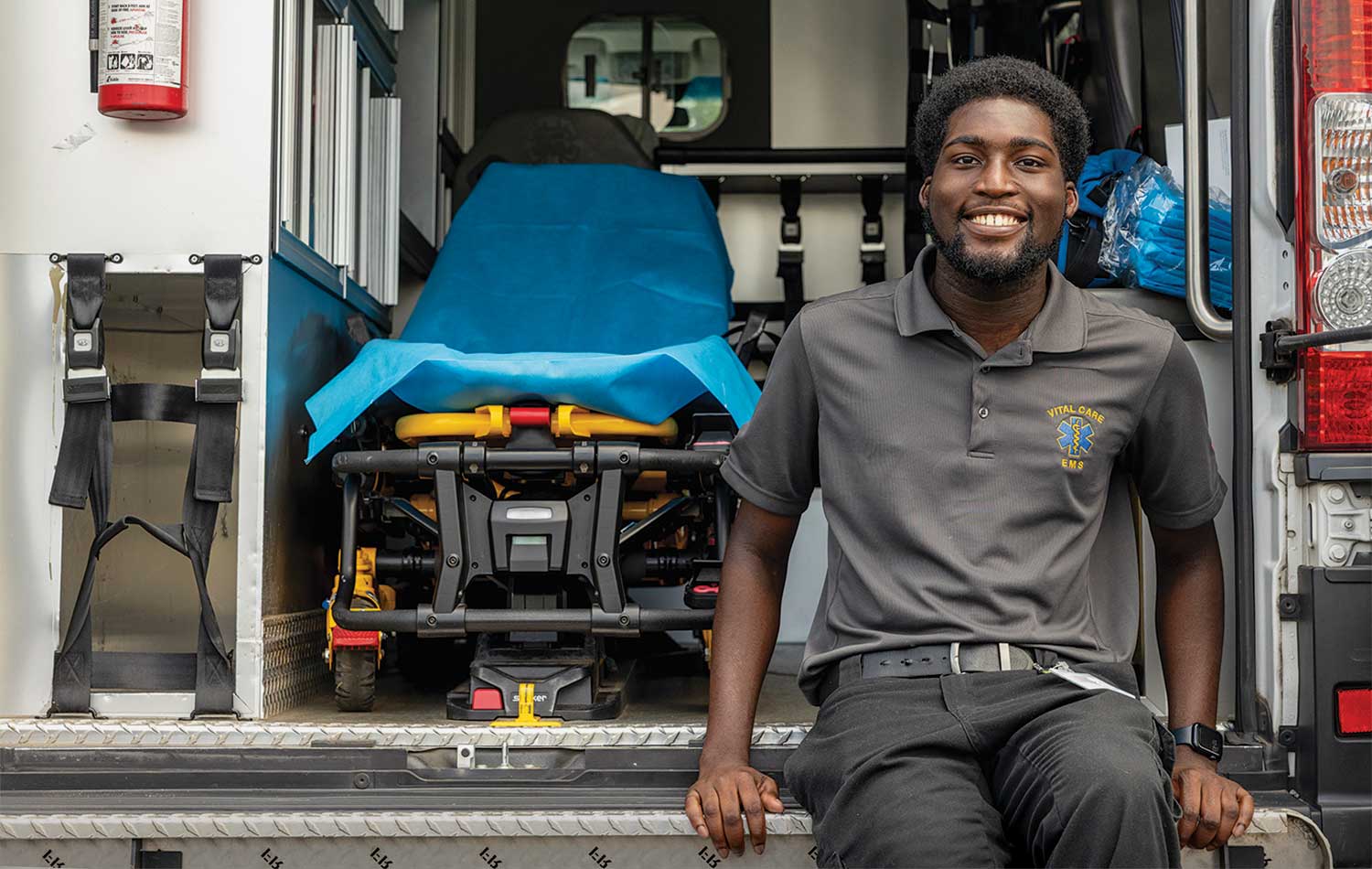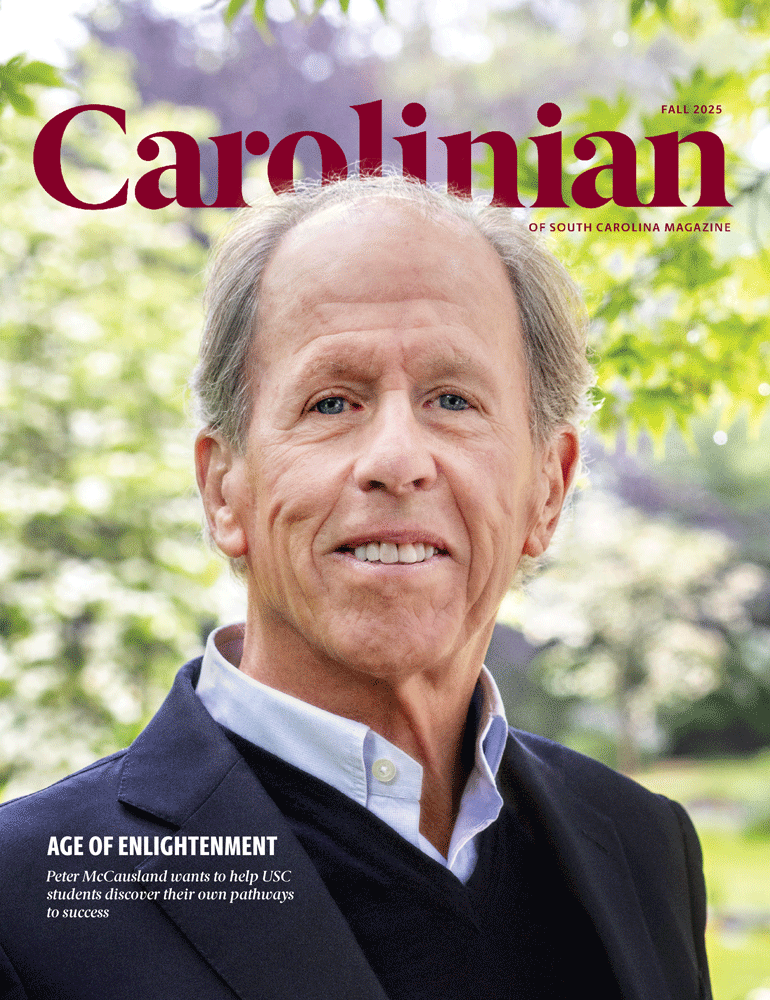If you could conjure someone who took advantage of every opportunity the University of South Carolina offers, they might look a lot like Tremayne Ansani.
Ansani had big plans before he even set foot on campus, but he had one overarching goal: to create and support community. Four years and a double major later, he had clearly accomplished what he set out to do. At his commencement ceremony in May, he sat on the stage as the recipient of the university’s highest student honor, the Algernon Sydney Sullivan Award.
A glance at his resume starts to tell the South Carolina Honors College grad’s story.
Ansani held leadership positions in Alpha Epsilon Delta, the health pre-professional honor society, and was an honors peer mentor and a member of the Black Honors Caucus. He was a tour guide at the Anne Frank Center. He conducted student research projects on brain wiring, heart disease and energy efficiency. He took medical service trips to Panama and Guatemala. He volunteered with Columbia-area organizations addressing homelessness, poverty and juvenile detention. He completed training to become a paramedic.
Oh, and he became a pretty good pickleball player on USC’s intramural courts.
“Throughout college, USC provided me with life-changing opportunities to develop my intellectual curiosity, professional skills and interpersonal growth,” Ansani says. “Whenever I was lost, USC and the Columbia community had the mentorship and guidance to support me. This instilled a passion to give back to the communities that raised me.”
Ansani grew up in Columbia. He chose USC because he wanted to follow in the footsteps of his older brother Tyson, a 2024 USC public health graduate, who offered him advice about classes, dining options and freshman residence halls. He chose the premed path to follow in the footsteps of his physician mom, who immigrated to the U.S. from Ghana.
The opportunities grew from there. Ansani learned about the university’s new neuroscience major, which offered an appealing blend of biology and psychology courses. But he also was interested in climate change and sustainability and wanted to better understand how those issues affect people’s health. His advisors steered him to geography, which became his second major.
“Throughout college, USC provided me with life-changing opportunities to develop my intellectual curiosity, professional skills and interpersonal growth. Whenever I was lost, USC and the Columbia community had the mentorship and guidance to support me. This instilled a passion to give back to the communities that raised me.”
“I just feel like USC is so broad in terms of the opportunities,” he says. “There are so many ways you can pursue your passions, whether it’s music, business, anything. USC really encourages this environment where you don’t have to stick to one thing. No matter what, they would support me. There’s nothing that if you really feel passionate about, you can’t do it.”
That included a course that allowed him to get certified as an emergency medical technician, which led to him working at a nonprofit, non-emergency ambulatory service. That opened his eyes to health care equity in his hometown.
“Growing up, I realized there were a lot of under-resourced communities, especially within my community, the Black community, which faces issues like more hypertension, a lot of co-morbidities,” he says. “It made me more passionate to want to do something, to see those issues improved.”
He plans to attend medical school in 2026 — hopefully with Tyson, who is currently doing clinical research at Duke University. Tremayne is taking a well-deserved gap year after four jam-packed years at USC, but that doesn’t mean slowing down. He’s currently studying American Sign Language, transporting patients to appointments as an EMT and learning from his experiences in the local community.
“Even though I’m from Columbia, I feel like I didn’t really know of all the health care issues or all those different insecurities that we have in underserved communities,” he says. “It was just really jarring because I feel like Columbia provided so many resources for me growing up and so many opportunities. And I was like, ‘Wow, there are so many issues and so many ways to support Columbia that I didn’t imagine.’ I consider it an honor to be a caregiver when I’m transporting those patients.”

